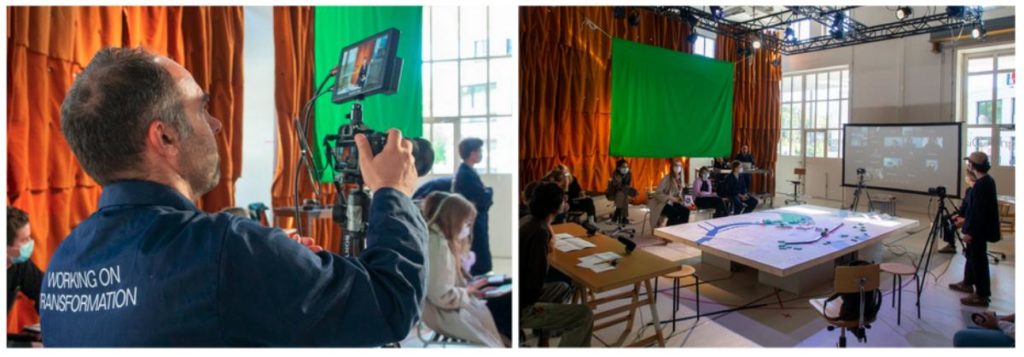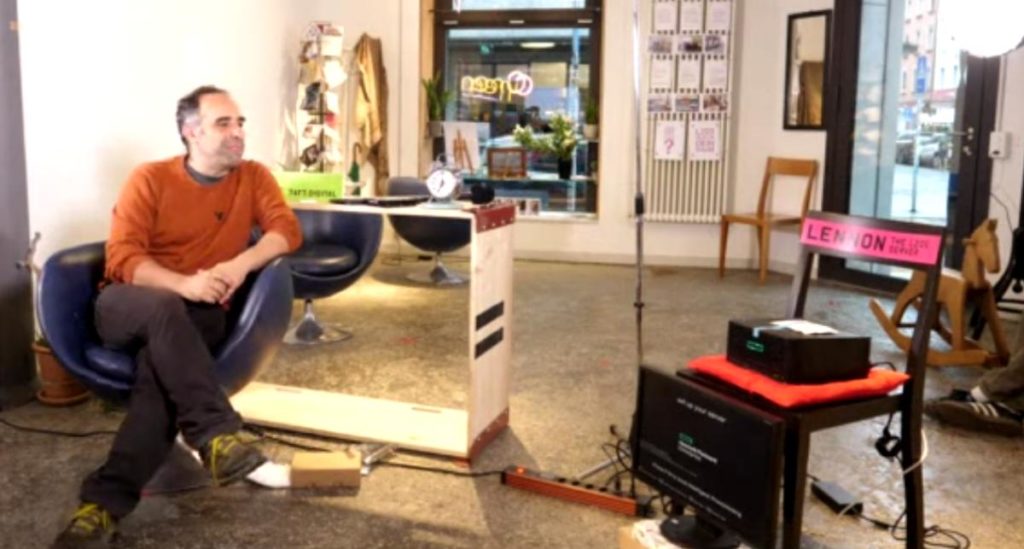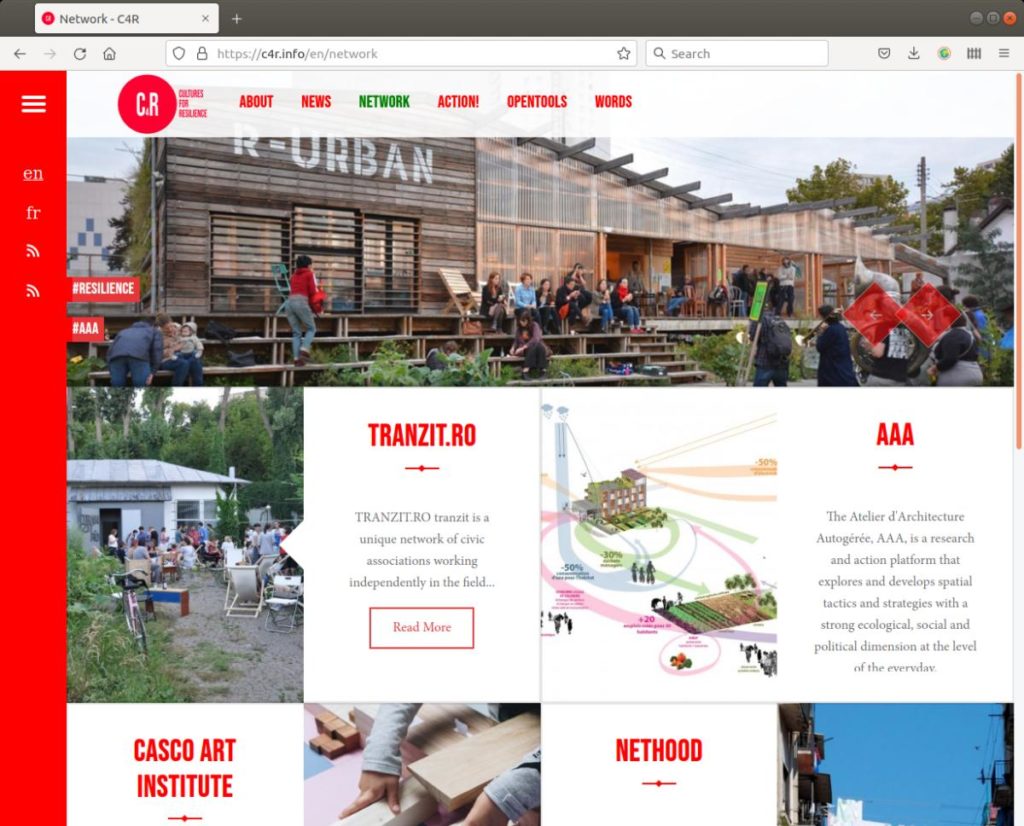
Simple tools for complex ecosystems
Panayotis Antoniadis
The NetHood association has been an active member in the JoPP community, through its co-founder Panayotis Antoniadis, who co-edited issue 9 on Alternative Internets, issue 11 on City, and this last issue 15 on Transition. The article Central urban space as a hybrid common infrastructure (co-authored with Ileana Apostol) in issue 14 marked the shift of NetHood from theory to practice, from a group of academics doing transdisciplinary research to a group of activists who co-founded a collective urban space. This space – L200 – is designed indeed as a hybrid common infrastructure, both digital and physical, a real example of the vision of the organic Internet.
Today, after five years of action research in EU projects such as MAZI and netCommons as an independent organization, NetHood members have engaged again with academia at the ETH Zurich’s department of architecture, in the chair of sociology (Ileana Apostol) and the chair of architecture and urban transformation or Newrope (Panayotis Antoniadis).

At the same time they have maintained their activist role at the L200 space and various other organizations such as the Internet Society Switzerland Chapter and Neustart Schweiz, networks including INURA and CIRCE, and research projects such as the Creative Europe project Cultures 4 Resilience (C4R) and the EU Horizon2020 project EuComMeet. The 7at7 series brings together this ecosystem of activities, aiming to develop a collective dissemination platform for communicating and engaging more effectively with the wider public, through a regular hybrid event every 7th of the month at 7pm Zurich, physically at L200’s netroom and digitally at 7at7.digital.

This back and forth between research and practice, and between social worlds (e.g., engineering and architecture) reveals a certain transition pattern that dictates the continuous change of perspective and collaborations that evolve in an organic way, guided by key peer production principles – namely radical openness, participation through action, and self-organisation.
The vision is clear: a loose federation of hybrid infrastructures, collective urban spaces that host local digital platforms facilitating local interactions, both physical and digital, while staying connected at the global level in ways that are neither enforced nor predetermined.
Our premise is that such a federation should not depend on the common agreement of a common identity, but simply provide tools and knowledge to facilitate a wide variety of collective learning processes between communities empowered to develop their own local environments, while being active nodes in an open international network, a global community of practice.
This is not a new idea, of course, and over time there have been different obstacles that make this vision sound more like an utopia. Perhaps the biggest obstacle today is the absolute domination of the Internet monopolies, and our addiction to their manipulative services that strip us out our free time and peace of mind.
Our current work with the CIRCE group is to revisit the early years of the Internet, and more specifically the RSS (Really Simple Syndication) protocol, and enhance its function and documentation (under construction) to enable the easy installation of local servers hosting RSS-enabled websites, and promote RSS more like a collective federation protocol than a personalized syndication protocol.
In the past, RSS was mostly a tool for individuals to curate their personal feeds, with limited control leading to high levels of noise. Today, having learned from our experience with the most popular platforms, we can redesign the RSS ecosystem to allow for filtering of content based on tagging, and for the creation of customised aggregators, that can provide tangible alternatives to Facebook, Twitter, and the like, for smaller or bigger groups without having to ‘rediscover the wheel.’

Grounding the ecosystems of such independent, but federated, web platforms to real physical spaces can be a real game changer, in creating a natural environment for local communities to come closer to their digital infrastructure and communicate with each other through hybrid setups, while being “down to earth” instead of lost in the Clouds. A sort of terrestrial, or territorial, or organic, Internet, developed as a long-term P2P learning process, which can become the basis for more empowering, more sustainable and healthier lifestyles, better balanced between the online and offline worlds.
Further reading
Antoniadis, P. (2022). The Territorial Internet. The Terrestrial Internet. The Organic Internet. NetHood Editions. [pdf] (German version in Widmer, H. (ed.). Auf den Boden kommen, Neustart Schweiz.)
Antoniadis, P. and Pantazis, A. (2021). P2P Learning. In O’Neil, M., Pentzold, C., and Toupin, S. (eds.), Handbook of Peer Production. Wiley. [pdf]
Antoniadis, P. (2019). The Organic Internet as a Resilient Practice. In Trogal, K., Bauman, I., Lawrence, R., and Petrescu, D. (eds.), Architecture and Resilience: Interdisciplinary Dialogues. Routledge. [pdf]
Apostol, I. and Antoniadis, P. (2020). Central Urban Space as a Hybrid Common Infrastructure. Journal of Peer Production, 14. [html]
Latour, B. (2018). Down to Earth: Politics in the New Climatic Regime. Polity Press.
Milani, C. and Antoniadis, P. (2021). Reti bio-organiche. Mondo Digitale (90). [pdf]
Trocchi, A. (2019). Internet, mon amour. Ledizioni. [html]
